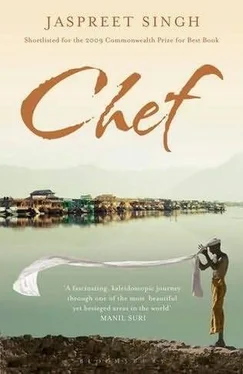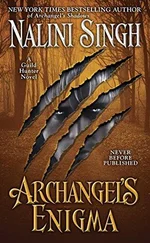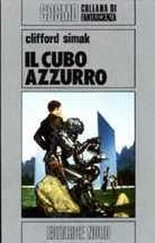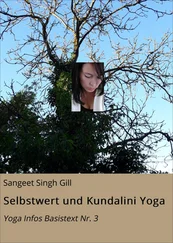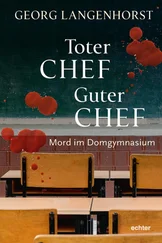From my hotel window I can see the Hindu houses. They have been empty for so long, the roofs are falling in. It has been ages since someone burned fire in those rooms. No smoke rises out of chimneys. Time is mocking the chimneys. In one of those kitchens I would like to cook for both Hindus and Muslims.
The difference between Hindu cuisine and Muslim cuisine is very easy to explain. In Kashmir the Hindus avoid sexy onions and garlic; they love the taste of heeng (asafetida) and the non-incestuous fennel and ginger. Muslims find heeng (and its sulphurous odor) unbearable. They adore garlic, green praans, garam masala, and on certain occasions, mawal flowers. So there is a ‘Hindu’ Rogan Josh, and a ‘Muslim’ Rogan Josh. Over the years I have developed my own recipe, a Rogan Josh inspired by these two great traditions. I have perfected the dish, and I can say without hesitation that it is my finest accomplishment. Rogan Josh is red because of Kashmiri chilies, which are ten times more red than the ordinary Indian mirchis. I know this from Irem. I must discuss the menu yet with Rubiya, but I will manage to persuade her to allow me to prepare this delicacy at the wedding.
Rogan Josh
900g lamb (shoulder cut, with or without bones), well rinsed and sliced into one-inch rectangles
5 tablespoons ghee
1 cup dahi
6 cloves, crushed finely
2 tablespoons Kashmiri red chili powder
1 cinnamon stick
½ teaspoon turmeric powder
1 onion, finely chopped
1 tablespoon ginger-garlic paste
4-5 garlic cloves, minced or finely sliced
2 teaspoons ginger powder
2 teaspoons fennel powder
1 teaspoon cumin seeds
¼ teaspoon cumin powder
¼ teaspoon crushed cardamom
1 teaspoon garam masala
½ teaspoon heeng
14 strands of saffron
Marinate the lamb for two hours. Coat the pieces with ginger-garlic paste, cumin powder, crushed cardamom, and turmeric. Sprinkle salt (to taste).
Heat ghee on high flame in a large heavy-bottomed pot (for best results, use degchi).
Add cloves, cumin, heeng, and cinnamon. Sauté for 2 minutes.
Add onion. Sauté until golden.
Add garlic. Sauté for 2 minutes.
Add lamb. Sear until dark brown on all sides. Oily juice will come out of pieces.
Stir till all liquid in the pot becomes vapor. Make sure the meat pieces don’t stick to the bottom.
Add dahi (well whisked) one spoon at a time, stirring constantly.
Cook for 15 minutes on medium heat.
Stir constantly till the sauce becomes very thick. Make sure the meat pieces don’t stick to the bottom.
Now add Kashmiri red chili ‘liquid’ (chili powder dissolved in 2 cups of hot water). Stir well.
Switch to high heat.
Add ginger and fennel powder. Stir and bring the pot to boil.
Cover and cook on low heat till the lamb is tender (approximately an hour).
Now add garam masala.
Cook for 2 or 3 minutes more.
Now add ‘liquid saffron’ and stir well. To prepare the liquid: Crush the saffron threads and mix with two tablespoons of hot water.
Rogan Josh is done.
Serves 6
Rogan Josh is done, I say to myself on the bed in the hotel room. Dinner is ready, Sahib… Drinks are served, Sahib… Applause… Shabash… Applause… I recall with absolute clarity that Sunday, five years ago, when the army honored me for my culinary contributions at the Military Academy in Dehradun. After the ceremony I delivered a small talk on Kashmiri cuisine for trainee chefs, jawans and officers and their wives, which was very well received, so many stood up and gave me genuine heartfelt applause. Standing ovation, as Sahib would have said.
During the little break (just before my talk) I wandered off towards the beautiful lawns of the Academy, and there under a tree I saw a cadet in uniform reading a book. I was filled with curiosity and inquired about the title, and he said it was a book of poems, and it was called In Different Hours. I flipped through the book, looked at the author’s name, and found myself saying out loud: So our Rubiya has become a poet.
‘You know the poet, sir?’
‘Of course. She used to taste my food. Rubiya was the taster of my preparations. I am so happy she has become a poet.’
‘I can’t believe you know her, sir,’ the cadet said again, somewhat stunned.
‘Yes, yes, General Kumar’s daughter has become a poet.’
‘Sir.’
‘Only yesterday she was playing with toys in the garden.’
‘I would like to write to her, sir. Please would you be kind enough to introduce me to the poet?’
So I wrote a little note of introduction for the young man, and jotted down my own address on a sheet of paper. I do not know how he got hold of her address or if he received a response, but to my surprise I received a response from Rubiya. She sent me two new poems as well, and a cutting of the newspaper article she had written after a recent trip to Pakistan. When I read the article I knew that the fate of Kashmir was going to change. I said to myself that this was the right approach. Not what Chef Kishen did. Chef’s approach was wrong. The path that Rubiya is following is the correct one, I had said to myself, and I say it again to myself, now, in this hotel room. When I read that article by Rubiya I knew that from now on the fate of Kashmir was going to change.
Before I flew to Pakistan, every day I had to deal with my fear of the border. The day I turned 5, Father drove us on a jeep to the border. It was a flag meeting, which is usually rare at that most unforgiving border. I was afraid, unable to articulate my fear. I found it difficult to cross the Line to Pakistan. ‘If you cannot make up your mind,’ said the guard on the Indian side, ‘then run back to the jeep.’ I still remember the paralysis I experienced standing in the gravitational field of the Line. Now and then I am able to recall the distance between the line (on the ground) and my foot (right above the line) frozen in air. My father had already crossed to the other side, the wrong side, and I was engulfed with strange and familiar fears. ‘Come, come,’ beckoned the enemy guard with a smile. But I could not overcome the terror, which kept swelling inside me. I ran back to the jeep. From the jeep I saw my father talking to enemy uncles and aunties as if they were his half-cousins.
Rubiya wrote a monthly column in the paper. I started reading her articles regularly. She never once mentioned me in her writings. I was a little bit hurt. Especially by the original article she had sent me in the letter. She had completely omitted me. I had accompanied her and General Sahib on that trip to the border. I had comforted her, given her her favorite badam kheer to eat. Not her ayah. The ayah was sick that day. And I had taken care of Rubiya that day. Only after reading the article the third or the fourth time I stopped feeling hurt. I know she did not mention me because it was to protect me. I was, it is safe to say, very important in her upbringing. I think she knows this so well she does not want to embarrass me with outwardly praise.
Rubiya and I, a long time ago, had developed a special understanding, which goes beyond words. (Am I repeating myself?) Sometimes when General Sahib was a little annoyed with my performance, Rubiya would wink or give me a look, which meant, I understand, don’t worry, my father is a bit out of his mind. He is a bit fussy, that is all.
I was not even seven when my mother died. At first things were difficult, she was absent and present everywhere I went, wounding me. Father was sad too and we would walk hours on end without talking to each other. Few months later he and I watched a movie at the open-air cinema in the army campus. Soon this became a ritual. He would accompany me to watch old Bollywood films. Seating at the cinema was strictly according to one’s rank. The chairs close to the screen were earmarked for officers and their families. Non-commissioned officers and combat soldiers and orderlies and cooks and gardeners could watch only from behind the screen. They sat cross-legged on grass, facing the projectionist, in strange lotus postures. Men in hobnailed boots guarded the border between the two sides. Once the heroine on the screen nearly drowned in monsoon rain. This scene was so intense, it left the guards leaning on their rifles, and I walked to the other side.
Читать дальше
Конец ознакомительного отрывка
Купить книгу
